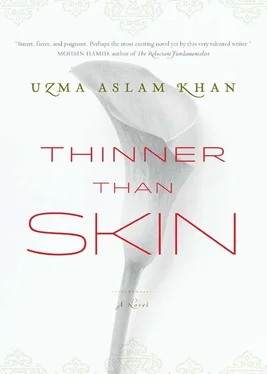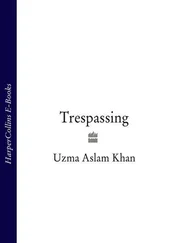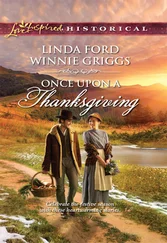The living owl was an obliging model. I shot two dozen photographs while she glared, swiveled, and glared again. There was the heart-shaped face and the wings with the delicate markings. There, the heart beneath my fingertip. I could feel it beat this time, caught in a small silver button yielding to my touch. I could squeeze the drumming of an enraged predator’s pulse.
When I returned inside the cabin to review my handiwork, all the images were white. Nothing else. Only a sallow blur. Stupefied, I rechecked the settings, the battery, the light. All as should be. By the time I resolved to try a second time, my visitor had vanished.
Leaving my cabin again, I finally did what I’d stepped out to do. I set out on my nightly walk. I didn’t interpret the owl as evil or wise. To me she only meant that I should have listened to my father and not become a man who “spends his life hiding behind a lens.”
On the other hand, he’d wanted me to be an engineer. If I couldn’t take a few simple shots of a creature who wanted herself seen, imagine what else I might have failed at. Who’d feel safe walking across (or even under) a bridge of my design? Such were my thoughts as I headed for the river, inhaling a mid-summer chill deep into my lungs.
Breathing was like sucking a hookah filled with flakes of glass. Strangely, the sensation was pleasant. No doubt it had to do with the elevation— five mountain peaks over 8,000 meters, fifty over 7,000 was a common boast — but that would only impress a man impressed by facts. Surely, it had more to do with the purity of the place, which was why it was here, more than anywhere else, that I came closest to feeling I’d rather be here than anywhere else. Rare for me, a man who likes to move. Fitting, then, that I was running beside a river in a valley shadowed and graced by nomads. Even if this hadn’t been the plan.
It was our first night here, on the ancient Silk Route, a route which had never been the route at all, not for us, nor for a single man, horse, or fly. There were as many routes through these mountains as veins in a rock, and, true to the spirits of the routes, our own track had changed since our arrival in the country. We were never meant to stop in Kaghan Valley. Which was why, earlier in the day, Farhana and I had argued. We’d barely spoken since and she was sleeping in the cabin while I photographed the owl. Or tried to. It occurred to me as I jogged along the river breathing phantom glass and feeling energized in a way that only happened to me late at night, that had I succeeded in capturing the owl on my screen, I could have shown the images to Farhana in the morning after waking her with a kiss and we might have made up.
Then again, perhaps not. She frequently complained that I was a photographer by day, a happy man by night. Like my father, she saw my passion as a disguise rather than an art, as if the two are dissimilar. She dismissed my camera as a veil that I only removed when the sun set. She was right about the timing. I always leave my camera behind on my nightly walks. She was also right that leaving it behind made me look at the world differently. Sometimes I liked the world more, sometimes less. Since meeting her, I’d begun to think of my two states as “with” and “without.” Without, Farhana weighed more prominently on my mind. But while photographing the owl, I hadn’t thought of Farhana even once.
I met her soon after moving to the Bay Area from Tucson, two years ago. I’d left my job with a design and construction company and couldn’t return home a failure. It would have been hard to explain that, having turned out better at shooting engineering projects than erecting them, I’d become a photographer.
It was landscapes I excelled at, or wanted to. I left Tucson and spent the next few weeks making my way up the West Coast, occasionally veering back into the desert after hitching a ride. I still have them in my portfolio, those who stopped for me, and the shadows of the many who didn’t: pick-up trucks, scuffed boots, silver belts glistening in the sun. There was old man prickly-pear cactus all around and of course the Joshua trees, as the wind blew in from the northwest and purple clouds draped us. For all the tales of murder and kidnapping in these parts, I never chose poorly. I was more often mistaken for Latino than A-rab, even by Latinos, including the one so amused by his mistake he followed me deeper into the desert. Anywhere else, I’d mistake him for Punjabi.
“So, you Mooz lim or what?” he asked.
“Or what?” I took his photograph as his shoulders shook and I eventually saw that he was laughing. There is something about large men with quiet laughs. Laughs that boil up slowly from within. A single raindrop splashed his nose. Only his belt, his teeth, and a patch of the distant San Bernardino mountains reflected the sun. After the second raindrop he was still laughing. I thanked him for the ride, walked into the desert, and did what I feared I could spend the rest of my life doing. I really looked at cactus. I really looked at triumph. Blossoming in shocking gimcrack hues of scarlet and gold in a world that watched with arms crossed, if it watched at all. It reminded me of the festive dresses worn by gypsies in Pakistan’s desert borderlands and mountain valleys. The drier the land, the thirstier the spirit.
When I finally arrived in San Francisco, for no reason other than that it was San Francisco, I had a stack of photographs of the Sonora Desert, the Petrified Forest, and Canyon de Chelly. I mailed off the best and waited for someone to bite, while renting an apartment with two other men. I had two interviews. The first went something like this:
“Why are you, Nadir Sheikh”—he said Nader Shake—“wasting time taking photographs of American landscapes when you have material at your own doorstep?”
“Excuse me?”
“This is a stock-photo agency. We sell photographs to magazines and sometimes directly to customers and sometimes for a lot of money. We might be interested in you, but not in your landscapes.”
“In what then?”
“Americans already know their trees.”
“Do they know their cactus?”
“Next time you go home, take some photographs.” When it was obvious I still didn’t get it, he dumbed it down. “Show us the dirt. The misery. Don’t waste your time trying to be a nature photographer. Use your advantage.”
Back at the apartment, my housemate Matthew felt sorry for me. He said a former boyfriend knew a nice little Pakistani girl. I ate his nachos while he talked on the phone.
I walked along the River Kunhar, thinking of Farhana. My way was lit by the moon and the rush of the current and the silhouettes of the trees and the hut down the way where we’d eaten trout earlier and it thrilled me to know that the others were asleep so I unlaced my boots and peeled off my clothes and stood buck-naked.
I heard a story once. A long time ago, on the banks of the river before it bends to meet the Jhelum, the Mughal queen Noor Jehan paused on her way to Kashmir. She was suffering from an eye infection and decided to dip her hands in the river to wash her face. The water was so cool and pure her eyes were cured. Ever since, the river has been called nain sukh , that which soothes the eye. I knew I was further upriver than the bend where the queen had once stopped, and I knew glacial water was not the cleansing stuff of myth. Yet something compelled me to kneel at the Kunhar’s edge and rinse my eyes, and even to drink her noxious fumes.
Which is what I was doing when I saw her again. The owl, soaring across the opal moon breaking in the water. Flapping twice before circling back toward me, she came to rest on a giant walnut tree. There, looking directly down at me, she spoke. “Shreet!” It was the voice, more than her flight from my camera, or her return now, when I was without, that made me feel signaled. No, singled. Singled out.
Читать дальше












